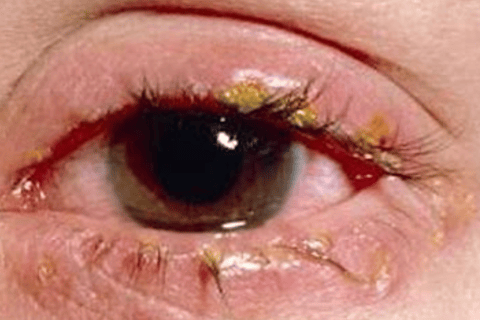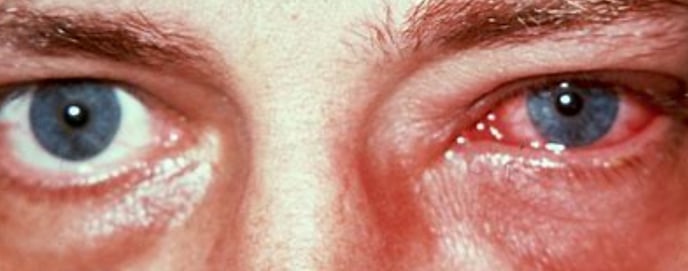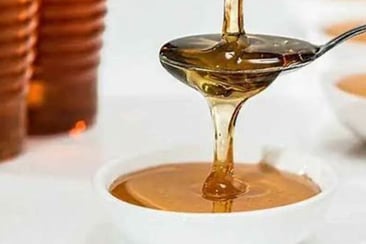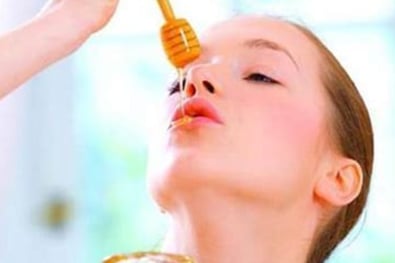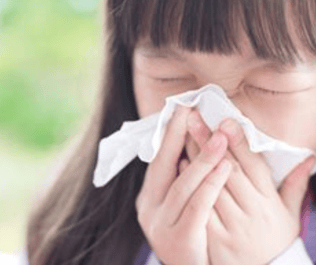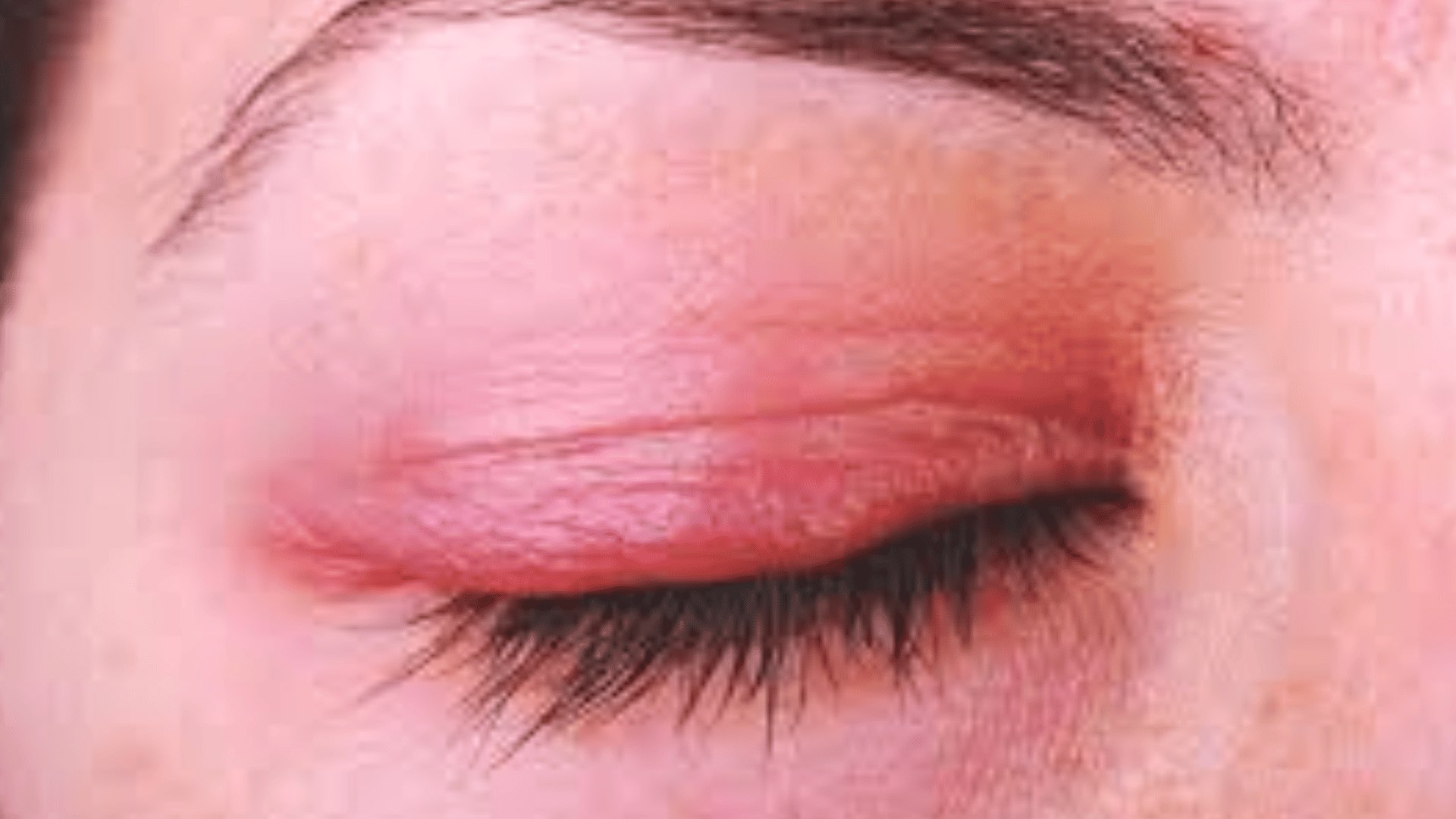
Fall and Winter Eye Care : Honey
Explore effective strategies to manage seasonal allergies and eye issues during fall and winter. Learn about avoiding allergens, appropriate medications, and safe home remedies, including the cautious use of honey for allergy relief.
GENERAL
Dr Hassan Al Warraqi


Fall and Winter Eye Care: Honey
Watery eyes, dryness, itching, and burning in the eyes are common symptoms during the fall and winter months.
This is because the air is colder and drier during these months, which can irritate the eyes.
Other factors that can contribute to these symptoms include:
*Allergic rhinitis:**
also known as hay fever, is a common allergy that can cause a variety of symptoms, including watery eyes, sneezing, and a runny nose.
*Dry eye syndrome:**
is a condition that occurs when the eyes do not produce enough tears or when the tears evaporate too quickly.
*Blepharitis:**
is an inflammation of the eyelids that can cause redness, swelling, and crusting of the eyelids.
*Conjunctivitis:**
also known as pink eye, is an inflammation of the conjunctiva, the thin membrane that lines the eyelids and covers the white part of the eye.
If you are experiencing watery eyes, dryness, itching, and burning in the eyes during the fall and winter months,
there are a number of things you can do to relieve the symptoms:
*Use artificial tears:**
can help to lubricate the eyes and relieve dryness.
*Apply a warm compress:**
Applying a warm compress to the eyes can help to relieve redness and inflammation.
*Avoid eye irritants:**
Avoid smoke, dust, and other eye irritants.
*Wear sunglasses:**
Sunglasses can help to protect the eyes from the sun and wind.
*Get enough sleep:**
When you are well-rested, your eyes are less likely to be dry and irritated.
If the symptoms are severe or do not improve with home treatment, see a doctor.
They may recommend prescription medications or other treatments.
Here are some additional tips to help prevent watery eyes, dryness, itching, and burning in the eyes during the fall and winter months:
*Use a humidifier:**
A humidifier can help to add moisture to the air, which can relieve dryness and irritation of the eyes.
*Avoid rubbing your eyes:**
Rubbing your eyes can irritate them and make the symptoms worse.
*Drink plenty of fluids:**
Staying hydrated can help to prevent dry eyes.
*Eat a healthy diet:**
A healthy diet can help to improve overall health and reduce the risk of developing eye problems.
watery eyes, dryness, itching, and burning in the eyes,
Honey in the eye
Honey in the eye for most eye diseases
Honey bees is an antiinfamtoy. antiallergic
Do not put honey directly in the eyes
It will reach the eye this way.
Dip your finger into a jar of honey and close your eye Apply the honey to the close eye to the close upper eyelid .
Repeat it five times daily or more It is safe to repeat wait the results .
keywords
antiinfamtoy , antiallergic, Honey , eyelid ,Watery eyes, dryness, itching, burning ,the fall ,winter ,prevention ,treatment ,Repeat it five times daily or more,Apply the honey to the close eye to the close upper eyelid
Honey: An Anti-Inflammatory and Anti-Itch Remedy for Fall and Winter
The Benefits and Uses of Honey
Seasonal Allergies
Definition and Causes
Seasonal allergies, also known as hay fever or allergic rhinitis, are an excessive immune response to airborne substances such as pollen, weeds, and mold spores.
These allergies typically occur during specific times of the year—spring, summer, or fall—depending on the allergen involved.
The body reacts to these allergens by releasing histamine and other chemicals into the bloodstream, triggering allergy symptoms.
"Seasonal allergies only occur during specific times of the year, particularly in spring, summer, or fall, depending on the type of allergen a person is sensitive to."
Symptoms
Common symptoms include sneezing, a runny nose, itching in the nose, eyes, and throat, watery eyes, and a scratchy throat.
These symptoms can be accompanied by nasal congestion, headaches, sinus inflammation, coughing, wheezing, and shortness of breath, especially for people with asthma.
"Seasonal allergies can cause itching in the nose, roof of the mouth, or back of the throat, or eyes."
Itching may develop gradually or suddenly.
Runny nose may produce clear, watery mucus, which can accumulate in the nose and cause blockage.
Diagnosis Methods
Diagnosis is mainly based on the symptoms and their timing, as well as a nasal exam to check for eosinophils.
Skin tests or blood tests (specific IgE) can be performed to accurately identify the allergens.
"Skin prick tests can help confirm the diagnosis and identify the specific allergen."
Treatment Methods
Avoidance: Reducing exposure to allergens as much as possible, such as staying indoors on windy days, avoiding gardening, and washing clothes after outdoor activities.
Over-the-counter medications: Oral antihistamines, nasal corticosteroid sprays, decongestants, and sodium cromoglycate nasal sprays. "There are many over-the-counter medications to help alleviate allergy symptoms, including oral antihistamines, nasal corticosteroid sprays, sodium cromoglycate nasal sprays, and oral decongestants."
Nasal irrigation: Using saline solutions to rinse the nasal passages and relieve congestion.
Immunotherapy: Injections or tablets containing small amounts of allergens to gradually desensitize the immune system. "Allergen immunotherapy (allergy shots) is a good option for some patients."
Natural and alternative treatments: Using herbal extracts or acupuncture, though it’s important to consult a doctor before starting any alternative treatments.
Additional tips: Regularly cleaning the home with vacuum cleaners equipped with HEPA filters, washing bedding regularly, and using air purifiers and humidifiers to reduce indoor allergens.
Diet: Drinking plenty of fluids and following a healthy diet rich in antioxidants and vitamins can help boost the immune system.
Avoid rubbing the eyes and using warm compresses to soothe irritation.
The Benefits and Uses of Honey
Composition and Benefits
Honey is a sweet liquid produced by bees from the nectar of flowers. It contains sugars, amino acids, vitamins, minerals, and antioxidants.
Honey is used as a natural sweetener, as well as an anti-inflammatory, antioxidant, and antibacterial agent.
"Honey contains a significant amount of sugar along with a mix of amino acids, vitamins, minerals, iron, zinc, and antioxidants."
Studies show that honey may help improve cardiovascular health, relieve cough, treat digestive problems, reduce depression and anxiety, and enhance wound healing.
Uses
Cough and sore throat relief: Honey can be taken directly or added to warm drinks to ease a sore throat and cough.
"Studies indicate that eucalyptus and citrus honey, along with medicinal herbs, are effective in alleviating cough in individuals with upper respiratory infections and severe nighttime coughing."Wound healing: Honey can be applied topically to wounds and burns to speed up the healing process.
"Topical application of medicinal honey has been shown to promote wound healing, especially for burns."Boosting immunity: Honey contains antioxidants that enhance the immune system and help combat infections, particularly in winter.
"During the winter, the risk of colds and flu increases, so consuming honey can help prevent these infections. It contains natural enzymes, vitamins, minerals, and antioxidants that work together to improve immune function."Eye issues: Honey can be used indirectly to reduce eye irritation symptoms by applying it to the closed eyelid, allowing it to reach the eye.
Precautions
Honey should not be given to children under one year of age due to the risk of infant botulism.
Some people may be allergic to components of honey, particularly pollen, which could cause severe allergic reactions.
"Avoid giving honey—even in small amounts—to children under one year of age, as it may cause a serious gastrointestinal condition (infant botulism) from exposure to Clostridium botulinum spores."Diabetic patients should monitor their blood sugar levels when consuming honey.
Honey and Seasonal Allergies
Honey as an Alternative Treatment
While reputable medical sources do not conclusively confirm honey’s effectiveness in treating seasonal allergies, some suggest that honey may have anti-inflammatory and allergy-relieving effects.
Honey and Eye Irritation: Some sources suggest using honey to reduce eye irritation symptoms, such as itching, dryness, and tearing, by applying it to the upper closed eyelid.
Honey and Antioxidants: Honey contains antioxidants that may help reduce inflammation linked to seasonal allergies.
Honey and Quercetin: Some sources mention that honey contains quercetin, which regulates histamine production in the body, potentially helping to alleviate allergy symptoms.
Additional Notes
Allergy Season: The allergy season is affected by the type of allergen and geographical location.
Home Remedies: Some home remedies to alleviate seasonal allergy symptoms include saline nasal irrigation, steam inhalation, and the use of essential oils.
Consultation with a doctor: It’s recommended to consult a doctor before starting any new treatment, especially if symptoms are severe or unresponsive to home remedies.
Conclusion
Seasonal allergies are a common condition that can be managed by avoiding allergens, taking appropriate medications, and using some home remedies. The benefits of honey are diverse, but it should be used with caution, especially for children and those with allergies.
Note: There is some debate among sources regarding honey’s effectiveness in treating seasonal allergies—while some suggest potential benefits, others stress the need for more research.
Frequently Asked Questions (FAQs) on Seasonal Allergies and Honey
What are seasonal allergies and what causes them?
Seasonal allergies, also known as hay fever or allergic rhinitis, are allergic reactions triggered by airborne allergens. They commonly occur at certain times of the year. Common causes include tree pollen (spring), grass pollen (summer), weed pollen (fall), and mold spores. The immune system overreacts to these normally harmless substances, releasing histamines and other chemicals, which cause allergy symptoms.
What are the symptoms of seasonal allergies and how can they be differentiated from a cold?
Symptoms include sneezing, a runny or blocked nose, itching in the nose, throat, and eyes, watery and red eyes, and sometimes coughing or wheezing. Unlike a cold, seasonal allergies don’t include fever or body aches, and symptoms usually occur during specific seasons. Nasal discharge from allergies is watery and clear, while it’s thicker and discolored with a cold.
What steps can be taken to limit exposure to seasonal allergens at home and outdoors?
To minimize exposure to allergens:
Avoid going out on dry, windy days and try to go outside after rain clears the air.
Avoid gardening and mowing the lawn.
Change clothes and shower after outdoor activities.
Don’t dry clothes outside.
Wear a face mask during outdoor chores.
Track pollen levels and stay indoors when they are high.
Close windows and use air conditioning with HEPA filters.
Vacuum with a HEPA filter and wash bedding in hot water regularly.
Use a humidifier indoors, especially in winter.
What treatments are available to relieve seasonal allergy symptoms, and what are their differences?
Treatment options include:
Oral antihistamines: Reduce sneezing, itching, and a runny nose (e.g., cetirizine, fexofenadine).
Nasal steroid sprays: Reduce nasal inflammation (e.g., fluticasone, budesonide).
Sodium cromoglycate nasal spray: Prevents the release of allergy-causing chemicals.
Oral decongestants: Provide temporary relief from nasal congestion (e.g., pseudoephedrine).
Saline nasal rinse: Clears mucus and allergens from the nose.
Eye drops: Contain antihistamines or vasoconstrictors to relieve eye itching and redness.
Immunotherapy: Allergy shots or tablets containing small amounts of allergens to reduce the immune response over time.
Can honey be used to treat seasonal allergies or strengthen immunity?
While there’s no definitive scientific evidence confirming honey’s direct effectiveness in treating seasonal allergies, it has anti-inflammatory, antioxidant, and antibacterial properties. Honey can help soothe a sore throat and cough and may boost immunity due to its antioxidants, vitamins, and minerals. However, honey may cause allergic reactions in some people (especially those allergic to pollen), and should not be given to infants under one year due to the risk of botulism.
What other health benefits does honey offer?
In addition to its anti-inflammatory and antioxidant properties, honey may be beneficial for:
Cardiovascular health: Antioxidants in honey may lower the risk of heart disease.
Digestive issues: Honey may relieve symptoms of gastrointestinal disorders like diarrhea.
Neurological health: It may help with depression, anxiety, and prevent memory issues.
Wound care: Honey promotes faster healing of wounds, particularly burns.
Immunity: Due to its antioxidants and vitamins, honey can strengthen the immune system.
Energy: Honey’s mix of glucose and fructose provides a natural energy boost.
How can honey be used in various ways to benefit from its health properties?
Honey can be consumed directly, added to warm drinks, mixed with lemon, ginger, or cinnamon, used in smoothies or yogurt, applied topically to wounds or burns, or placed on the closed eyelid for eye irritation (but not directly in the eye).
Are there any other dietary or home remedies that may help alleviate seasonal allergy symptoms?
In addition to medical treatments and honey, some dietary and home remedies include:
Eating a diet rich in fresh fruits and vegetables for antioxidants and vitamin C.
Staying hydrated by drinking enough water and sugar-free drinks.
Consuming foods high in quercetin, such as apples, onions, berries, red grapes, and green tea, to regulate histamine production.
Including probiotic-rich foods like yogurt and kefir to improve nasal allergy symptoms.
Using a saline nasal rinse to remove pollen from the nose.
Inhaling steam to relieve respiratory congestion and inflammation.
Using essential oils like peppermint or camphor to help alleviate symptoms.
